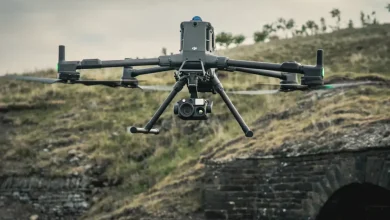The Essential Guide to Choosing Server SSDs for Modern Data Centers

In today’s digital age, data storage plays a pivotal role in ensuring seamless business operations. As the demand for faster, more reliable systems grows, businesses are shifting from traditional hard drives to advanced storage solutions like Server SSDs. These solid-state drives offer a significant boost in performance, efficiency, and reliability, making them a critical component in modern data centers. This article explores the benefits of Server SSDs, how they impact data management, and why working with a Server & Server Components Supplier is essential for selecting the right storage solution.
Why Choose Server SSDs?
Unlike traditional hard drives (HDDs), which rely on mechanical parts to read and write data, Server SSDs utilize flash memory to store data. This results in faster read/write speeds, lower latency, and enhanced reliability. With no moving parts, SSDs are less prone to physical damage, making them a more durable choice for mission-critical environments. As businesses scale up and data needs become more demanding, SSDs provide the necessary speed and reliability that HDDs simply cannot match.
1. Enhanced Performance
The most significant benefit of Server SSDs is their speed. Unlike HDDs that operate at slower speeds due to mechanical limitations, SSDs can access data almost instantly, drastically reducing load times for applications and improving system responsiveness. This performance boost is especially valuable for businesses dealing with large volumes of data and requiring real-time access to critical information.
For instance, in industries such as e-commerce, financial services, and healthcare, where data processing speed is crucial, Server SSDs can provide the speed needed to ensure smooth operations and maintain competitive advantage.
2. Reliability and Durability
Server SSDs are built to withstand the demands of 24/7 operations in data centers. With no moving parts, they are less susceptible to wear and tear than their mechanical counterparts. Additionally, SSDs offer improved shock resistance, ensuring they continue functioning under stressful conditions, including sudden power surges and physical impacts.
As a result, businesses can rely on Server SSDs for long-term performance without worrying about unexpected failures or downtime.
3. Energy Efficiency
Data centers are notorious for their high energy consumption, with much of that being attributed to hard drives that require significant power to spin their platters. Server SSD consume considerably less power, helping reduce overall energy costs. Over time, this can lead to significant savings, especially for companies operating large-scale data centers with thousands of servers.
By investing in energy-efficient Server SSDs, businesses not only save money but also contribute to environmental sustainability by reducing their carbon footprint.
4. Scalability and Flexibility
The growing demand for more storage capacity and faster processing speeds requires data centers to scale quickly and efficiently. Server SSDs offer the scalability needed to accommodate increased workloads without compromising performance. Additionally, their smaller form factor and lower power requirements make them suitable for high-density server environments, allowing data centers to pack more storage into less space.
Factors to Consider When Choosing Server SSDs
When selecting Server SSDs for your data center, there are several key factors to consider:
- Capacity: Determine the storage capacity needed for your applications and ensure the SSDs offer sufficient space to accommodate future data growth.
- Endurance: Depending on the workload, the endurance of the SSD is Some drives are designed for high-write environments, while others are more suited to read-heavy applications.
- Form Factor: Server SSDs come in various form factors, such as 2, M.2, and PCIe cards. The choice will depend on the server architecture and the available slots.
- Interface: Look for drives that support NVMe (Non-Volatile Memory Express) for faster speeds and lower latency, especially in performance-intensive applications.
Working with a Server & Server Components Supplier
Selecting the right Server SSD can be a daunting task, given the variety of options available. This is where working with a trusted Server & Server Components Supplier can make a significant difference. A reliable supplier can help you navigate the complexities of choosing the right SSDs based on your specific needs, whether you’re looking for high-capacity storage, ultra-fast performance, or energy-efficient solutions.
An experienced supplier will also provide technical support and advice, ensuring you make an informed decision that aligns with your long-term business goals. Whether you’re upgrading
your existing infrastructure or building a new data center, a qualified supplier can guide you through the process and offer the best solutions available.
Real-World Applications of Server SSDs
Server SSDs are widely used in a variety of industries that require fast data processing and storage capabilities. For example:
- E-commerce Platforms: Server SSDs enable faster website load times and improve the overall customer experience, leading to higher conversion rates.
- Financial Services: In banking and trading, Server SSDs help process transactions in real-time, allowing for faster decision-making and reducing delays in operations.
- Healthcare: Hospitals and medical centers use Server SSDs to quickly access patient records and run complex diagnostic tools, improving patient care and operational
Conclusion
Server SSDs have revolutionized data storage by offering faster speeds, higher reliability, and energy efficiency compared to traditional HDDs. Whether you’re running a small business or managing a large data center, upgrading to Server SSDs can significantly improve performance and reduce operational costs. By working with a trusted Server & Server Components Supplier, businesses can ensure they’re choosing the right SSD solutions to meet their unique needs and stay ahead in today’s competitive digital landscape.

Source: The Essential Guide to Choosing Server SSDs for Modern Data Centers




